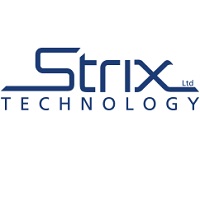Strix Group PLC (LON:KETL) Chief Executive Officer Mark Bartlett caught up with DirectorsTalk for an exclusive interview to discuss their strong patent protection strategy, recent actions taken, how getting these products off the shelves helps consumers and how much resource is dedicated to protecting its technology and products.
Q1: Strix Group has a strong patent protection strategy with a portfolio now of over 150 patents, can you tell us a bit more about this and why it’s so important to the Group?
A1: Patents have always been a very strong part of our business and when developing any of our new products, Strix will always look for technologies or products that can be patent protected. This forces us to go through a very thorough assessment of the technology prior to that investment and the patent itself provides some level or protection for our new products to make sure we can fully recover the investment. Also, all of our products are intrinsically linked to the safety of appliances in our industry, so such patents form a very strong barrier to entry for any low grade or poor quality alternatives in the market.
Q2: You recently put some examples of action taken in the last 6 months in China and Europe, can you explain these further and why these particular cases are important case studies?
A2: We’re very focussed when defending our patents and the three cases that we recently cited are very good examples.
In the first case, here in China, we have seen a new growth category of what they call multi-cookers which in many cases were using low grade safety controls that we’re in breach of our own patents. In this case, we took action as the inventors to defend the market share in China as well as the market for our loyal brand customers in that territory.
The second action you would’ve seen is related to immersed kettle technology where actually the patents expired over 7 years ago. This, again, is another very good example where different laws can be used, in this case copyright laws, even when patents have expired to make sure you can prevent the use of what they call ‘slavish copies’ where alternative technologies could be used instead.
Finally, in this digital age, the third case was really looking at a number of cases of products being sold on the internet which we’re linked to the preparation of speciality teas. We constantly patrol the market to prevent the sale of low grade products and take actions where we consider there is either a safety issue or a breach of our intellectual property. Such products sold on the internet can be sold across many different markets and these actions ensure they are removed completely in all cases.
Q3: So, how does getting these products off the shelves help benefit both consumers and Strix operations?
A3: The safety controls we produce are very complex products requiring a high level of engineering capability, there are controls produced by some competitors with varying degrees of both quality and reliability. The actions we take helps prevent these low grade or poor quality products entering the market which helps to secure brand equity for our loyal customers and in turn helps consumers to make sure they’re buying safe, reliable and quality products. Obviously, this also helps us to maintain the share we have built up over the years with the Strix control now estimated to be used across the world, more than one billion times per day.
Q4: How much resource do you dedicate to protecting Strix Group’s technology and products?
A4: We have a very dedicated and focussed team of just five individuals in fact who work on three main areas. Firstly, safety actions which are really targeted at preventing low grade products entering the market. Secondly, there’s the patents ensuring we protect our inventions and our investments to provide high quality and safe products to our customers and consumers. Finally, we also work with all of the international standard authorities to make sure we can increase re the rigour of the standards, often trying to raise the bar to prevent such products being accepted within the market.




































